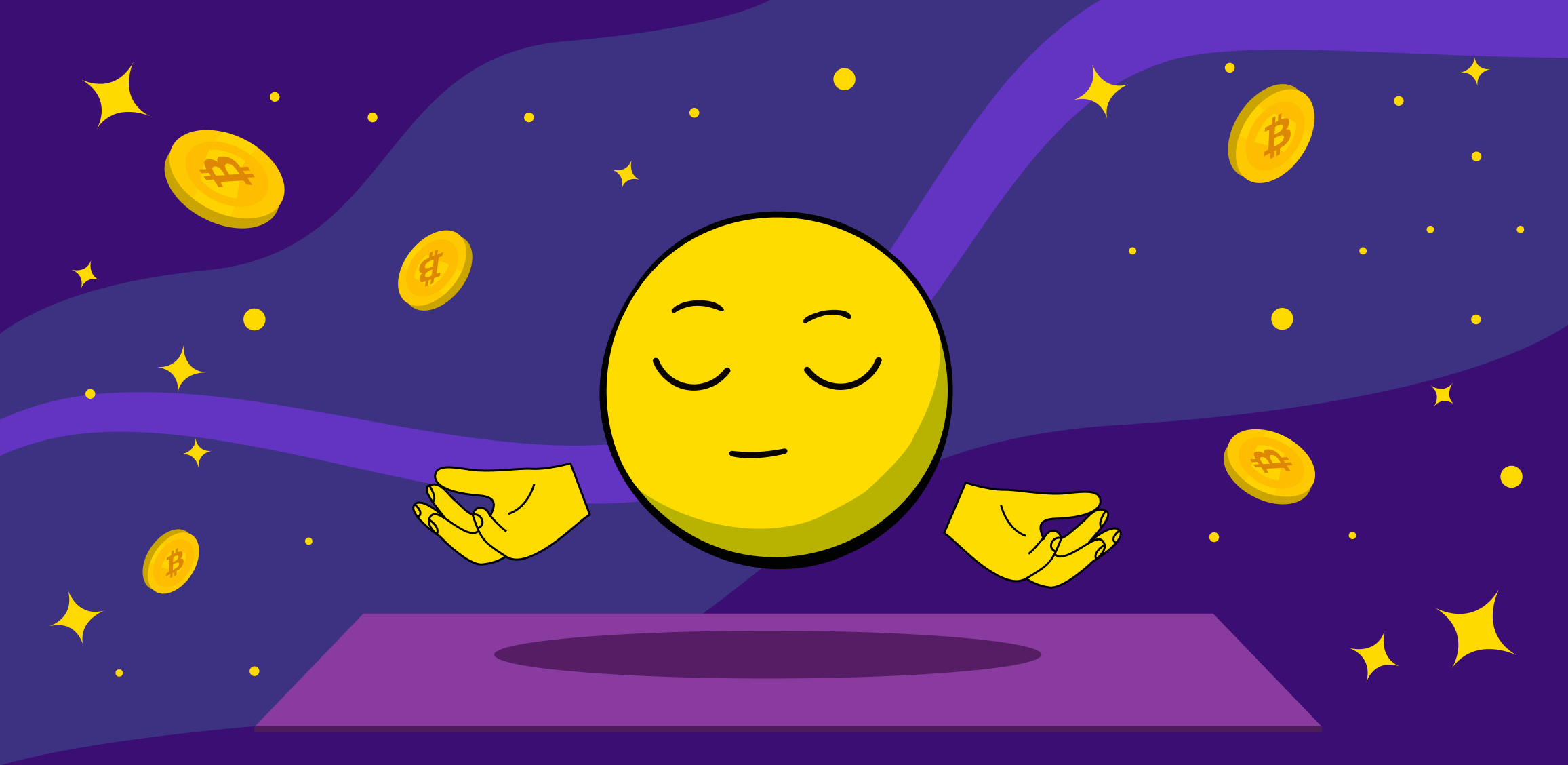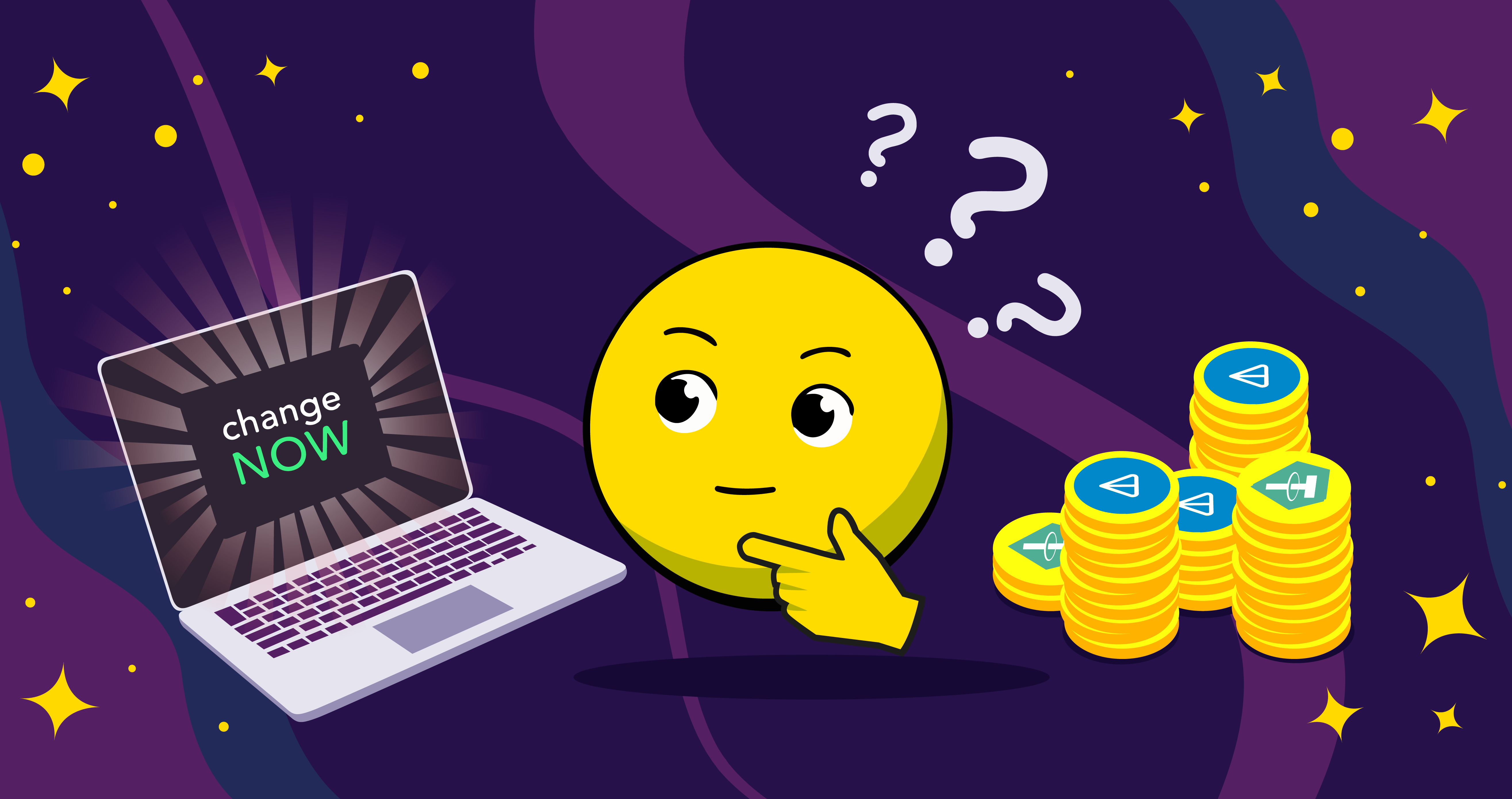
All investors and traders are expected to act rationally. However, in practice, people make decisions based on different kinds of cognitive and emotional distortions (biases, stereotypes, emotional effects). Thus, many become victims of their own emotions and cognitive attitudes and lose the opportunity to make logical and rational decisions. Allowing such cognitive and emotional errors to determine your trading decisions is likely to negatively affect the result of crypto trading.
In this article, we consider what can cause trader's stormy reactions and how to keep fear and greed in check.
Recent market volatility as an example of why managing emotions is critical
Today, a bullish trend prevails in the cryptocurrency world, but some coins react especially strongly to the latest political news or upcoming market updates. The projected growth of assets such as ETH amid the launch of ETF funds could turn heads and greatly reassure traders. Various memcoins related to Donald Trump are taking off while the political agenda is urgent, the powerful popularization of clickers also attracts many investors and shows growth. The SEC loosened its grip. All these factors have a beneficial effect on the market, where its participants feel more confident and begin to invest more willingly in digital assets.
In a word, greed prevails in the market now. The desire to have time to get the maximum profit can blunt the awareness of risks that are not actually justified by market analysis. Or, on the contrary, the fear of missing out on potential benefits can stop you from making a good deal. Today's high volatility and, as a result, increased emotionality can do dirt with traders, despite the fact that the market has a positive atmosphere.
Market volatility: how the high volatility in crypto markets can trigger strong emotions.
Just imagine, you are going to open a deal, choose a strategy, but here you see a sharp jump in your favor - the first thing that may come to mind: "This is the very moment." Or you successfully closed three deals in a row. Why not invest more next time?
Or imagine watching your coins drop that doesn't stop. How much doubt and frustration or anger can you experience? Or is there still hope for a price recovery?
High market volatility can have a significant impact on investments. Unpredictable market conditions can cause traders a number of emotions from fear and doubt to greed and the desire to "take everything from life." A situation where a trader is unable or unwilling to deal with their emotions and acts in a state of intense emotional arousal is called a tilt.
Understanding emotional triggers in crypto trading
Many situations can serve as a trigger for a tilt happening: getting a loss after the price, almost reaching the goal, has turned around; buying the wrong instrument, skipping a series of potentially profitable trades, and taking a loss immediately after entering the market. Regardless of the situation, whether a trader finds himself in a tilt state depends only on his susceptibility, cognitive and emotional biases.
Understanding the nature of emotions plays an important role in making trading decisions that determine the outcome. Therefore, let's analyze what the most common emotions a trader may face.
Common emotional responses
They say fear and greed are the engines of the market. Perhaps that's why Warren Buffett said, "You want to be greedy when others are fearful."
Fear
Fear is a basic human emotion that helps with survival, but not in the crypto world.
Financial activities are risky, and volatile cryptocurrencies can be intimidating, like a deadly worm from Dune. With courage and skill, one can master it. Thus, it's common for traders, especially newcomers, to feel fear due to the risks and volatility in cryptocurrency.
Types of fear in trading
- Primary fear:
- Arises before opening a trade.
- Occurs when you have a strategy and plan but doubt their correctness.
- Involves emotions during the assessment process.
- Everyone takes different amounts of time to assess risks, depending on their "reflection depth coefficient."
- Secondary fear:
- Occurs after experiencing one or more failed trades.
- Stronger than primary fear as it's backed by both emotions and facts.
- Failed trades can result from incorrect tools or analysis, leading to unprofitable deals.
- Causes feelings of helplessness, depression, and self-doubt.
- Overshadows the ability to analyze the market correctly.
- Stems from negative experiences rather than irrational ideas about one's capabilities, making it harder to overcome than primary fear.
If the primary fear is experienced as a feeling of anxiety, doubts about the success of the operation, then the secondary fear inspires a feeling of helplessness, depression, self-doubt, and most importantly, overshadows the ability to correctly analyze the market. Thus, secondary fear affects not only the emotional state of the individual but also intellectual abilities. The emergence of secondary fear is always due to negative experience, and not irrational ideas about their own capabilities. Therefore, it is more difficult to deal with it than with the primary one.
Impact of Fear on Trading
Fear interferes with profit as traders may close positions early to avoid potential losses — potentially profitable transactions can become unprofitable due to early closures.
Uncertainty about actions can lead to rash decisions driven by anxiety and panic.
Greed
Greed is the opposite of fear. It often arises after several successful trades and is fueled by human ambition.
Greed leads to irrational thinking, such as mass buying of coins with unjustified price rise expectations. Even with a trading plan, traders may invest more when they see favorable price jumps, ignoring the increased risk.
It must be remembered that a passionate desire to get rich quickly and easily on cryptocurrency is more likely to bring the opposite effect.
FOMO (the fear of missing out)
In trading, such a phenomenon as FOMO (the fear of missing out) is also common. In this case, it is fear based on greed. Strong market movements can trigger a desire to capture potential profits quickly. This often leads to regrettable decisions.
Impact of greed on trading
Greed may prevent traders from closing deals at intended rates, seeking higher profits. This can result in missing real reversal signals due to emotional control.
Commonly, greed leads to negative outcomes such as:
- Price moving against the trader's position.
- Market reversals are seen as temporary corrections.
- Loss of money as traders search for confirmation of movement in their desired direction.
Anger
Anger arising from financial market failures or personal problems leads the trader to recklessly open and close positions without sticking to their strategy. This inevitably leads to a loss of capital.
Euphoria
Euphoria is caused by one or more successful trades in a row, which can introduce a trader into a floor-adequate condition. As a result of this condition, the susceptibility to risks deteriorates and the quality of the market analysis is reduced. A trader in a state of euphoria may think that he has conquered the market and now all the money in the world is available to him. Taking too many risks in a clouded mind, he begins to ignore his strategy, and this is very likely to lead to a loss of previously received income.
Psychological concepts relevant to trading
In addition to the stormy emotions associated with risks, psychological traps await market participants.
Prejudice
Prejudice in trading arises from past failures, leading traders to avoid certain cryptocurrencies, like Ripple, despite potential opportunities. They favor previously profitable assets, which, by probability, might now bring losses. To avoid cognitive bias, stick to the trading plan, focusing on entry and exit conditions, not the cryptocurrency's name.
Herd behaviour
If in the cryptocurrency market everyone begins to buy or sell a certain coin en masse, many traders stop adhering to their trading plan and follow the example of the majority. This is how this feeling shows itself during the bull run in the main market or pumps/dumps of small-cap coins.
Exposure to other people's influence
New traders often struggle with strategy and decision-making, typically seeking advice from experienced colleagues or trading "gurus." However, this can lead to smaller profits or losses. It's better to rely on personal forecasts and technical analysis rather than discussing every move with colleagues. This approach boosts confidence and increases the chances of successful trades.
Trading dependence
Dependence on trade is very similar to gambling addiction when a person cannot stop, even if he has lost all his fortune. A trader buys assets with the hope of selling them at a higher price and does not close unprofitable positions. A person becomes dependent on both positive and negative emotions. Getting rid of this problem is quite difficult, and it requires a long work with a psychologist.
Practical strategies for maintaining emotional control
To avoid tilt and emotional overheating while trading crypto, there are several useful strategies:
- Preparing for losses: Understanding cryptocurrency volatility and factors affecting price spikes is crucial. Remember, Bitcoin halves every four years, influencing growth. Maintaining composure is tough, but the market recovers after drops. Be aware of scammers, password loss, or misinterpreting market behavior. Awareness of potential mistakes helps in coping with them.
- Verification and analysis of information: It is important for a crypto trader to find the correct sources of information that will present a real picture of what is happening on the market in full. This requires complete immersion in the sphere and deep analysis.
- Practice: The trader must clearly understand all the details of the operation and its consequences. Regular practice will help reduce emotional stress.
- Break: Be sure to take a break between trades, taking a rest from emotional and psychological stress. Open new positions deliberately and prudently, not succumbing to excitement and the desire to take revenge.
- Learning from any situation: Do not hope that every deal will bring victory. It is important not to forget that a thorough analysis of defeats can increase the percentage of effective transactions. From the mistakes made, you can extract valuable experience that will help the crypto trader not to step on the same "rake."
- Meditation: Relaxing practices will help to control your emotions in any life situation, not only in trading. In the end, you are the one!
Tools and techniques for emotional management
Controlling your emotions is a key skill in crypto trading. There are several techniques and tools that will help you succeed in the volatile market and not repeat the mistakes of many:
- Keep a trading diary: In such a register, you should record all transactions, prerequisites, conditions, results, what emotions you experienced in the process, before and after. Accessing past notes will help you identify emotional patterns and triggers, learn from past experiences, and make better decisions in the future.
- Set clear goals: Determine what income you want to achieve regularly and in the long run. A certain goal will help you stay focused and cool and avoid spontaneous emotional actions.
- Trading plan: The creation of a sales plan is based on a rational analysis. It will contain a description of the chosen trading strategies, your risk readiness, and entry and exit criteria (stop-loss/take profit). A plan will discipline and restrain the trader from decisions based on emotions, and will help maintain rational trading.
- Follow the trade plan: In order not to give way to emotions and not be in tilt, the market participant should strictly follow the intended trade plan. Deviations from the prescribed strategy or ignoring the installed stop losses can lead to losses.
- Keep learning: Do not interrupt your training in market trading skills. Keep abreast of new technologies, tools, and news, and study past cases. This will help you remain informed and competent, develop a better understanding of the market, and save you from rash actions.
- Portfolio diversification: Invest in different cryptocurrencies to reduce risks and create highly emotional situations.
- Invest only the money you are ready to lose: It is better to start trading with small amounts, the loss of which will not be critical for your finances.
Conclusion
The crypto market is stressful, and financial losses can negatively affect investors' emotions. The responsibility for decisions is heavy, making it hard to move past trading failures. To avoid this, consider the risks, learn from others' experiences, and use emotional management strategies to maintain mental health. If self-control is difficult, seek professional help.



